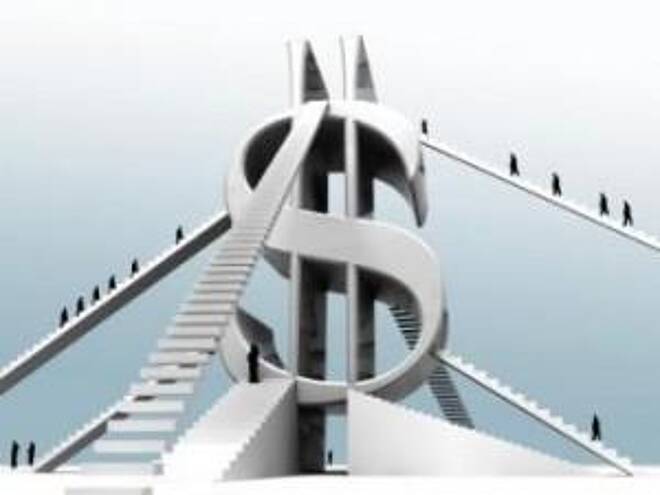Advertisement
Advertisement
US Dollar And Japanese Yen Up On “Safety” Rally
By:
The US dollar and the Japanese yen soared Monday morning as markets move to safety after the massive terrorist attacks in Paris over the weekend. The US
The US dollar and the Japanese yen soared Monday morning as markets move to safety after the massive terrorist attacks in Paris over the weekend. The US dollar gained 30 points to 99.19 ignoring weakness last week on disappointing retail sales data released on Friday. The Japanese yen totally ignored GDP numbers released today putting Japan back into a technical recession. The yen gained 75 points against the euro to trade at 131.34. Against the greenback the yen was able to gain 12 points to 122.48. Japan’s economy slid back into recession in July-September as uncertainty over the overseas outlook hurt business investment, putting policymakers under growing pressure to deploy new stimulus measures to support a fragile recovery.
Many analysts expect the economy to grow only moderately in the current quarter as companies remain hesitant to use their record profits for wage hikes, underscoring the challenges premier Shinzo Abe faces in pulling Japan sustainability out of stagnation with his “Abenomics” stimulus policies.
The U.S. dollar is stronger in Asia early Monday amid a broad-based move toward safe assets after attackers killed 129 people in Paris over the weekend, prompting retaliatory strikes by France on Islamic State’s stronghold in Syria. Reaction is being led by the euro, which dropped sharply at the start of trading against the U.S. dollar. The euro tumbled 50 points to trade at 1.0723.Traders said the market would respond to any escalation in European tensions, with some expecting stronger rhetoric against Islamic State in a G-20 statement due later today.
The attacks might have some ability to disrupt the U.S. Federal Reserve’s planning around an interest-rate increase in December. This is the type of event that could have the Fed rethinking whether to tighten policy next month if global equity markets see a significant correction in coming days.
A recommendation by the International Monetary Fund to include China’s yuan in the elite basket of currencies that comprise the IMF’s lending reserves was largely overshadowed by the events in Paris.
The Australian and New Zealand dollars declined in the Asian session with the Aussie giving up 15 points against the stronger US dollar. The Aussie is trading at 0.7115. The kiwi dipped 12 points against the buck even as retail data hit the markets. New Zealand retail turnover jumped sharply in the three months to September with an increase of 1.6% reported. The figure, far stronger than the 0.1% gain of the prior quarter, smashed expectations for an increase of 1.2%. The sharp lift in sales left annual turnover up 5.7% from a year earlier, higher than the 5.1% pace seen in the three months to June. The kiwi fell to 0.6528. Traders were more concerned with the problems in Paris than the jump in dairy prices. Fonterra has indicated the forecast dividend may be in the 35-to-40 cents per share range up from 25 cents last year, which disappointed many farmers who expected to gain more from the value- added side of the business when dairy input prices were down. The revision would mean a likely total payout to farmers of $4.95 to $5 per kilogram of milk solids after retentions, compared to $4.65 last season.
About the Author
Barry Normanauthor
Advertisement
